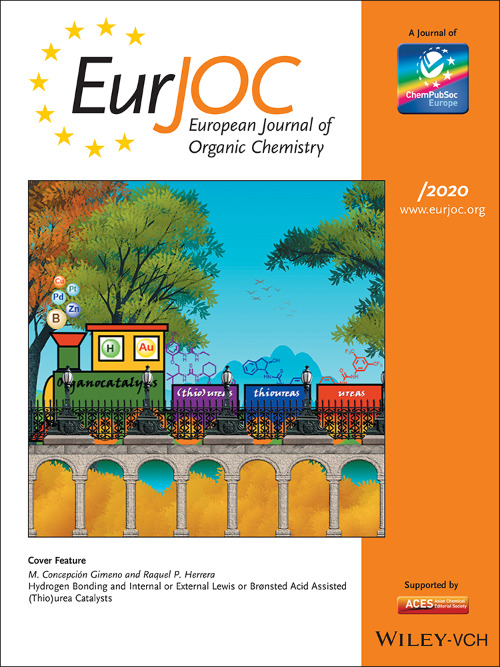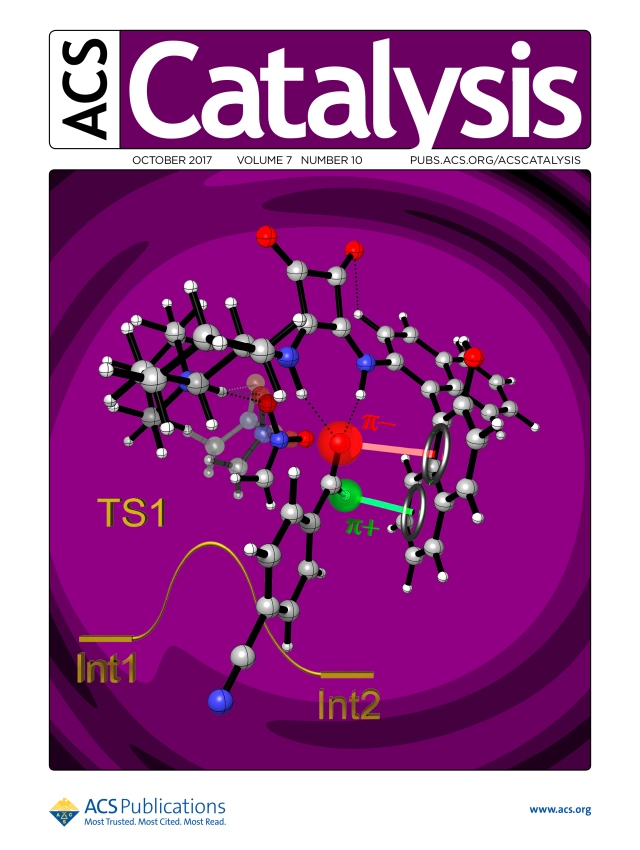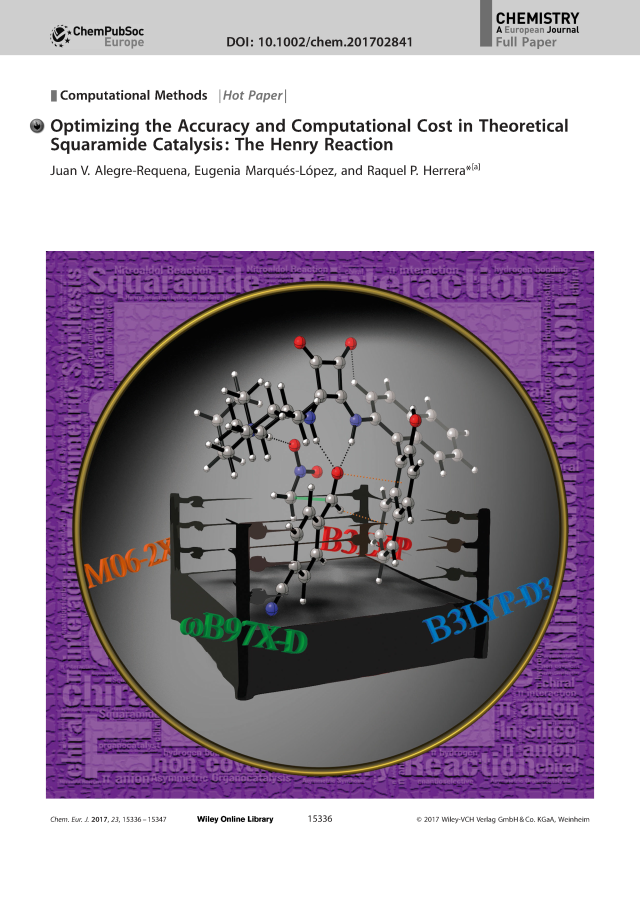Asymmetric organocatalysis appeared in the early 21st century as a complementary discipline to the metal and enzymatic catalysis. In this new context, a huge number of highly enantioselective approaches have been successfully developed for common organic reactions, and thus the synthesis of interesting complex structures has been also achieved.
Our ongoing research program focuses in the development of new chiral organocatalysts and other novel organocatalytic procedures. We have invested most efforts in the hydrogen bond based catalysts area, such as (thio)ureas and squaramides. Additionally, we work with different organocatalysts families, such as cinchona alkaloids, phase transfer catalysts and proline derivatives.
Our goals could be summarized as follows:
1.- Developing new organocatalysts through the proper design of useful structures.
2.- Exploring novel and more efficient reactions based on diversity-oriented synthesis. The improvement of catalytic methods for the asymmetric synthesis of complex structures (such as natural products or drugs) is a current challenge in Organic synthesis, especially if these methods allow reaching high levels of atom efficiency.
3.- Synthesizing highly enantiopure functionalized compounds. Achieving substrates with different functionalities in the same backbone is a stimulating challenge from a synthetic point of view because it remains as a difficult task in Organic synthesis.
4.- Testing the biological properties of the resulting compounds. Many of the achieved products through the methodologies developed in our research framework can be of interest due to their biological activities, among other properties. As a result, those compounds might find applications in different areas of medicinal chemistry, pharmacy, etc.
5.- Studying the mechanism of action and the role of the organocatalysts in the explored reactions and processes. Understanding the mechanisms and roles of the different species present in the reaction medium is crucial for the optimization of the processes which are being developed, and to efficiently apply those catalysts in additional reactions.
6.- Innovating and transferring the obtained knowledge, processes and synthesized products is other of our main aims regarding our research overall strategy.



















